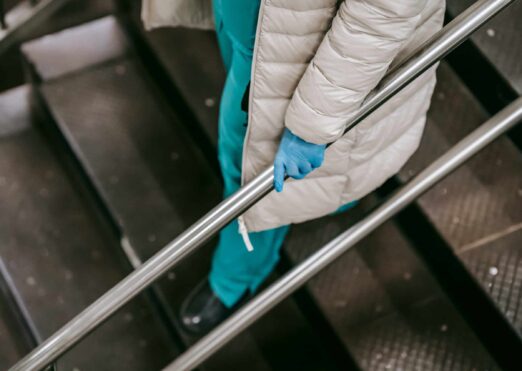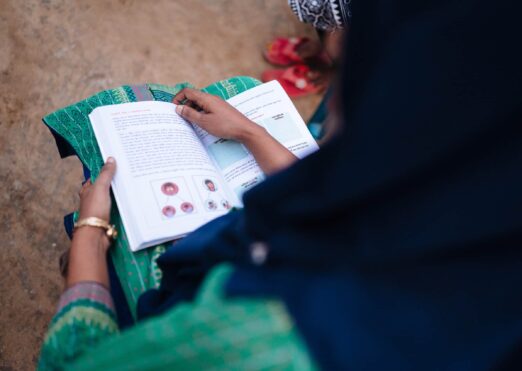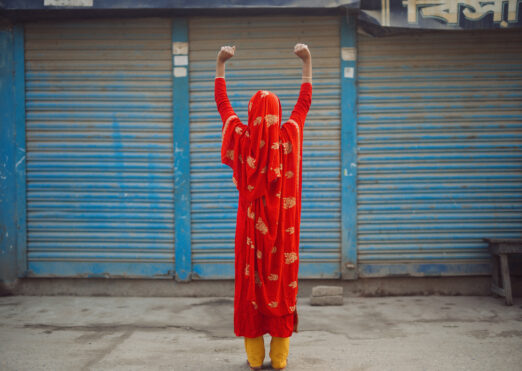Jaya’s Story: On the frontline in Bangladesh
December 18, 2019
Right now more than 370 survivors of modern slavery and human trafficking are currently being supported by frontline staff at Justice and Care – staff like Jaya*, who estimates that she has supported more than a thousand victims over the course of her career. We sat down with her to find out more about her role…
Jaya joined Justice and Care two years ago and acts as our Senior Associate for Aftercare in Bangladesh. She has worked in the field for more than 10 years – seeing her involved in rescues, repatriation, rehabilitation, social integration and providing counselling support.
No two days are ever the same Jaya says; ‘I have to play various roles at different times in handling the victims. For example, at times I have to act like a social worker, at other times I have to work as a member of the rescue team – I become a motivator, a counsellor and sometimes I have to be a guide to the victims to steer them in the right direction.’
In her role, Jaya meets survivors in their home or at work. But she can also be found advocating on their behalf – networking with government officials, NGO staff, shelter homes and other stakeholders to ensure comprehensive support for the welfare of the victims she is responsible for.
Currently, Justice and Care is responsible for more than one-third of the repatriations of trafficking victims from India back to Bangladesh. Operations commence with the identifying of the victim’s family and follows-through to their rescue, repatriation, rehabilitation and social integration. Justice and Care tries to remain beside the victims every step of the way.
‘I found that the first day when I visit the house of any victim is very challenging. Because it takes time and effort to establish a friendly relationship with the victim and their family. I have to be very tactful so that the victim can grow trust and confidence in me.’
‘Often the victims are not willing to tell their story on the first visit. Even, at times they tell the fake story, which is very challenging. I need to be very tactful to find out the truth. I have special expertise and knowledge of handling victims – they trust me in sharing their miserable conditions and experiences, because of what I can offer to them.’
Another part of Jaya’s role is to work with police and Border officials in Bangladesh, providing a critical bridge between them and the victims – helping to track down all those responsible, bring justice and to help improve the system.
‘We share with the police our observations on the victim and support them if their case goes to the court. We provide our victims with the necessary legal support, it is our responsibility to maintain regular contact with the local police.’
Jaya says that at present, human trafficking is an acute problem in Bangladesh. According to the US State Department’s report on Human Trafficking in Person, every year 700K Bangladeshis illegally migrate abroad looking for work. This puts them at great risk of suffering physical, mental, economic and sexual exploitation from traffickers who prey on their vulnerability.
‘After serving for twelve years in the field, my feeling is that human traffickers are changing their tactics on a regular basis.’
Currently, there are very few NGOs working on tackling human trafficking in Bangladesh. Jaya believes that to end human trafficking, we need to create awareness among all Bangladeshi people and also ensure substantive victim support.
Jaya dreams of a day when human trafficking and modern slavery are not longer crippling the lives of men, women and children in Bangladesh.
Jaya is married to a businessman and they have two children together. Jaya hopes the victims she works with can find restoration and a future back home with their own families. She sees so much hope and resilience despite the horrific exploitation the victims have been through.
‘Victims will be able to raise their voices against any kind of malpractices against women and children. They can work for both the purposes of creating awareness among the people and to stop others from becoming victims.’
* Name changed to protect identity.


